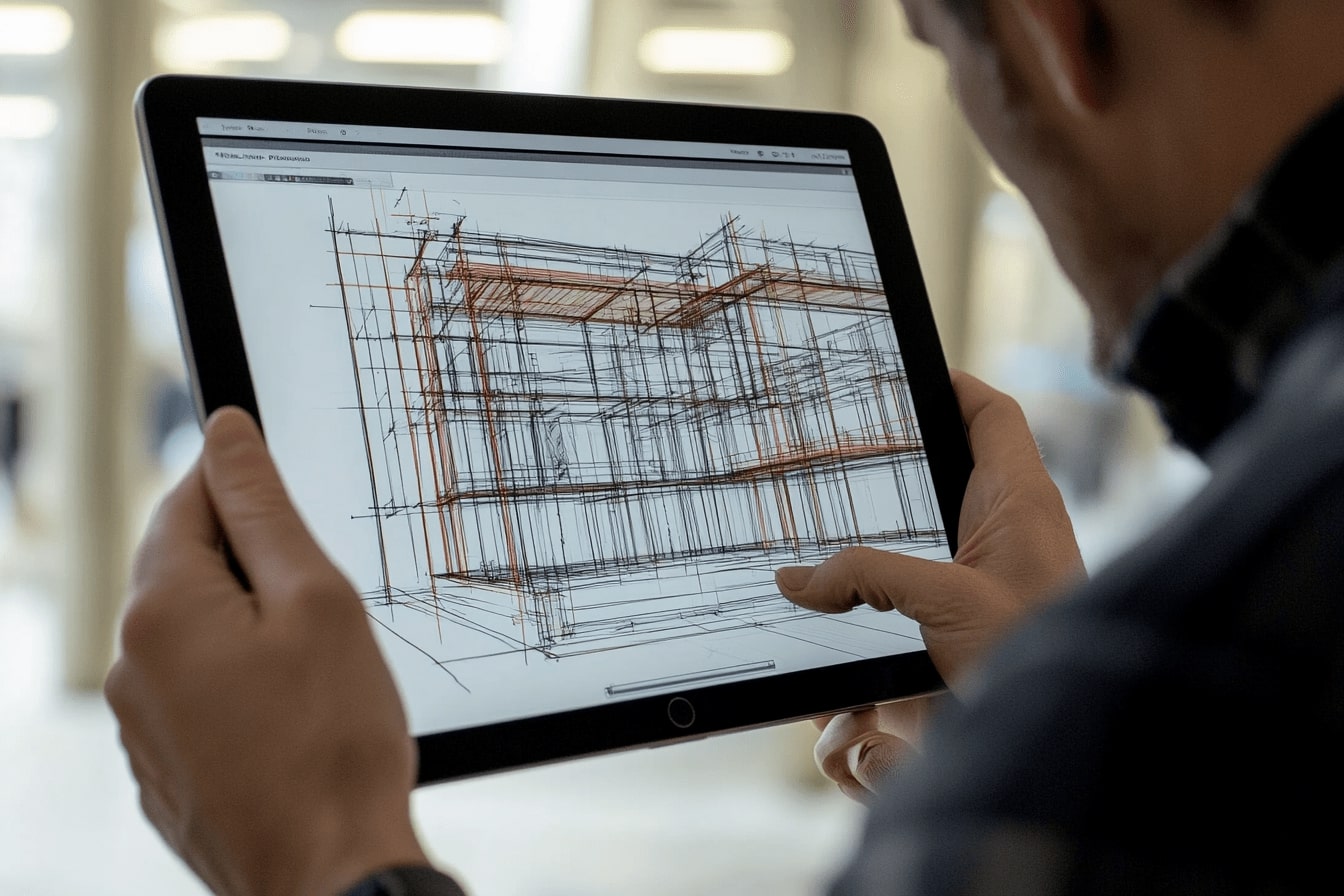- Home
- Articles
- Architectural Portfolio
- Architectral Presentation
- Inspirational Stories
- Architecture News
- Visualization
- BIM Industry
- Facade Design
- Parametric Design
- Career
- Landscape Architecture
- Construction
- Artificial Intelligence
- Sketching
- Design Softwares
- Diagrams
- Writing
- Architectural Tips
- Sustainability
- Courses
- Concept
- Technology
- History & Heritage
- Future of Architecture
- Guides & How-To
- Art & Culture
- Projects
- Interior Design
- Competitions
- Jobs
- Store
- Tools
- More
- Home
- Articles
- Architectural Portfolio
- Architectral Presentation
- Inspirational Stories
- Architecture News
- Visualization
- BIM Industry
- Facade Design
- Parametric Design
- Career
- Landscape Architecture
- Construction
- Artificial Intelligence
- Sketching
- Design Softwares
- Diagrams
- Writing
- Architectural Tips
- Sustainability
- Courses
- Concept
- Technology
- History & Heritage
- Future of Architecture
- Guides & How-To
- Art & Culture
- Projects
- Interior Design
- Competitions
- Jobs
- Store
- Tools
- More
Top Construction Management Softwares for Enhanced Project Efficiency in 2024

Table of Contents Show
In the fast-paced world of construction, managing projects efficiently is crucial for success. Construction management software has emerged as a game-changer, offering project owners and managers a comprehensive view of their projects from start to finish. This specialized software integrates task management, document control, resource allocation, and risk management into a single platform, streamlining the entire construction process.
By synchronizing information between the field and the back office, construction management software ensures that everyone—from engineers and architects to contractors and site managers—stays on the same page. It helps in planning and budgeting, setting and tracking expectations, and overseeing procurement, making it an indispensable tool for modern construction projects. With these solutions, we can tackle complex projects more efficiently, ensuring timely and within-budget completion.
Understanding Construction Management Software
What Is Construction Management Software?
Construction management software (CMS), also commonly referred to as construction software, is a specialized project management tool crafted to cater specifically to the needs of the construction industry. It integrates various functionalities to streamline project planning, coordination, and execution. This software provides an effective means to manage tasks, documents, resources, and risks throughout the project’s lifecycle. By bridging the gap between the field and the back office, CMS ensures that information flows seamlessly among stakeholders, including engineers, architects, contractors, and owners.

Key Features and Capabilities
CMS encompasses several features that make it indispensable for construction projects:
- Task Management: Tools like Gantt charts, task lists, and timelines help in planning and tracking project milestones. They allow project managers to assign tasks, set deadlines, and monitor progress, ensuring timely completion.
- Document Management: Efficient handling of project-related documents such as plans, contracts, receipts, and reports. Enhanced storage and collaboration capabilities simplify the sharing of these documents among teams.
- Resource Management: Allocation and tracking of both human and physical resources. This includes managing labor schedules and ensuring the availability of necessary materials and equipment at the project site.
- Risk Management: Features to identify, assess, and mitigate risks. Real-time risk tracking tools help in minimizing potential disruptions and maintaining project timelines and budgets.
- Team Communication: Multiple channels for communication between stakeholders. This ensures that everyone involved in the project is updated on status changes and critical developments.
- Cost Control and Budgeting: Tools for estimating costs, maintaining budgets, and tracking expenses. Budgeting tools help in identifying cost overruns and taking corrective actions promptly.
- Submittals and RFIs: Facilitates the creation, submission, and tracking of submittals and Requests for Information (RFIs). This capability helps clarify project components and reduce ambiguities.
By leveraging these key features, construction management software optimizes project workflows, enhances communication, and ensures projects are delivered on time and within budget.

Evaluating Construction Management Software
Core Functions in Construction Software
Construction management software (CMS) covers critical areas essential for project success. Key functions include scheduling, communication, and document management. Scheduling tools help manage timelines and allocate resources. Effective communication modules ensure clear interaction among teams. Document management features keep project information centralized and accessible.
Our review shows products like Procore excel in these core functions by providing a comprehensive suite of tools. Procore integrates field service, quality management, and safety management, enhancing its utility on construction sites. Buildertrend and Autodesk Construction Cloud also perform well, offering robust features specific to construction needs.
Integration with Other Tools
Integration capabilities elevate CMS effectiveness by connecting it to other essential tools. Successful integration consolidates data across various platforms, improving efficiency. Top CMS options seamlessly connect with accounting software, takeoff software, estimating software, and CRMs.
We found that Smartsheet offers exceptional integration options, linking with Microsoft, Google Drive, Salesforce, and Adobe Creative Cloud. Procore also provides integrations but with a stronger focus on construction-specific tools. These integrations streamline workflows and reduce the need for manual data entry.
User Experience and Accessibility
User experience and accessibility are crucial for adoption and daily use. A user-friendly interface with intuitive navigation can significantly impact productivity. Mobile accessibility allows team members to capture and share information in real time from the field.
Procore and CoConstruct receive high marks for their intuitive interfaces and mobile capabilities. Smartsheet’s templates and mobile app further enhance usability, making it easier for teams to adopt the software and maintain communication. Products with a steep learning curve or limited mobile functionality may hinder project progress, making user experience a vital evaluation criterion.
Choosing the Right Construction Management Software
Assessing Your Company’s Needs
Identifying specific requirements is vital when selecting construction management software (CMS). We should start by listing the core functions our projects demand, such as scheduling, document management, and resource allocation. Not every CMS offers all features, so understanding these needs helps narrow down options. For example, if we prioritize detailed project scheduling, a software like Procore or Buildertrend could be suitable. Security and compliance requirements also play a role in shaping our decision. For businesses with unique workflows, partnering with a construction management software development company to build a custom CMS can ensure better alignment and integration. It’s important to choose a partner with proven experience and deep domain knowledge to avoid costly missteps.
Considering Software Scalability and Cost
Selecting CMS that scales with our business growth is essential. We need to evaluate if the software supports expanding project sizes and additional users without significant performance drops. Free or low-cost options like OrangeScrum may seem attractive initially, but these often require expensive add-ons for essential features. Consequently, understanding total costs, including potential future upgrades, ensures we don’t face unexpected expenses. Keep in mind, a solution that’s cost-effective today might become pricey as we scale.
Reviewing User Feedback and Ratings
User reviews provide insights into real-world performance and usability. High ratings on platforms like Capterra and G2 indicate reliability and user satisfaction. For instance, tools like ClickUp score highly for task management and priority tracking, enhancing productivity. Verified reviews can highlight common issues, helping us avoid software with frequent bugs or poor support. By analyzing feedback from similar-sized companies in our industry, we can gauge the software’s effectiveness and potential challenges.
Overall, selecting the right CMS involves understanding our needs, considering scalability and cost, and reviewing user feedback for informed decision-making.
Top Trends in Construction Management Software
Advancements in AI and Automation
We’ve seen significant progress in AI and automation in construction management software. Automation streamlines repetitive tasks, reducing human error and speeding up processes. AI enhances predictive analytics, helping us foresee potential project risks and optimize resource allocation. These advancements improve overall efficiency and accuracy, making software like Procore and Buildertrend invaluable.
The Rise of Cloud-Based Solutions
Cloud-based construction management software has become a game-changer. As projects grow in complexity, cloud solutions offer unparalleled scalability and flexibility. Real-time updates via mobile devices ensure everyone stays on the same page. Procore, Autodesk Construction Cloud, and Smartsheet, all provide robust cloud-based platforms, enabling us to access and update project data anywhere, anytime.
Focus on Enhanced Security Features
As data breaches become more common, the focus on security in construction management software has intensified. Advanced encryption, multi-factor authentication, and secure data storage are now standard. Tools like CoConstruct prioritize security, ensuring sensitive information remains protected. Enhanced security features help us maintain client trust and safeguard project data against threats.

Conclusion
Efficient construction management is pivotal for ensuring successful project completion. Construction management software (CMS) plays a crucial role in streamlining various aspects of construction projects, including scheduling, communication, and document management. Tools like Procore, Buildertrend, and Autodesk Construction Cloud offer robust solutions to meet these needs.
Integration capabilities stand out as a key feature. Smartsheet enhances efficiency when integrated with other tools. Similarly, products such as CoConstruct and Smartsheet are recognized for their user-friendly interfaces and mobile accessibility, making them ideal for on-the-go project management.
Choosing the right CMS involves assessing company requirements, scalability, and user feedback. It’s essential to consider the cost, especially for larger enterprises that may face additional fees due to the higher volume of work managed through the software. CMS trends indicate a shift towards AI and automation, which improve both efficiency and accuracy. Cloud-based solutions remain popular for their scalability and real-time updates.
Security is another critical factor. Enhanced security features protect against data breaches, with tools like CoConstruct prioritizing these measures to safeguard project data and maintain client trust.
To maximize the benefits of CMS, proper training and familiarity with the selected software are necessary. Advanced functionalities and tiered pricing should also align with the company’s specific needs and project scale. By selecting the right CMS, construction projects can achieve greater efficiency, accuracy, and overall success.
- best construction project software
- best construction software 2024
- cloud-based construction management
- construction industry software
- construction management platforms 2024
- construction management software
- construction management software reviews
- construction management system
- construction project management software
- construction project software
- construction scheduling software
- construction software for project efficiency
- construction software solutions
- construction workflow software
- efficient construction software
- project management tools for construction
- software for construction management
- top construction management tools
Submit your architectural projects
Follow these steps for submission your project. Submission FormLatest Posts
The Best Free CAD Tools Every Architecture Student Should Know in 2026
A comprehensive look at the best free CAD tools available for architecture...
Busan Opera House by Snøhetta: A Waterfront Cultural Landmark Nearing Completion
Snøhetta's Busan Opera House transforms reclaimed waterfront land into a democratic cultural...
10 Essential Lumion Tips Every Architecture Student Should Know
Discover 10 game-changing Lumion tips that will transform your architectural renderings. From...
5 Common Lumion Mistakes & How to Fix Them
Discover the 5 most common Lumion mistakes that slow down your workflow...












Leave a comment